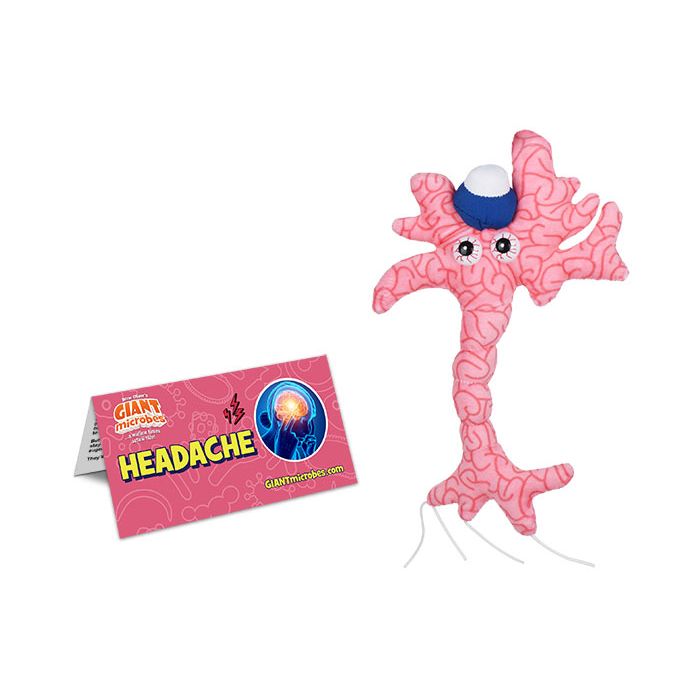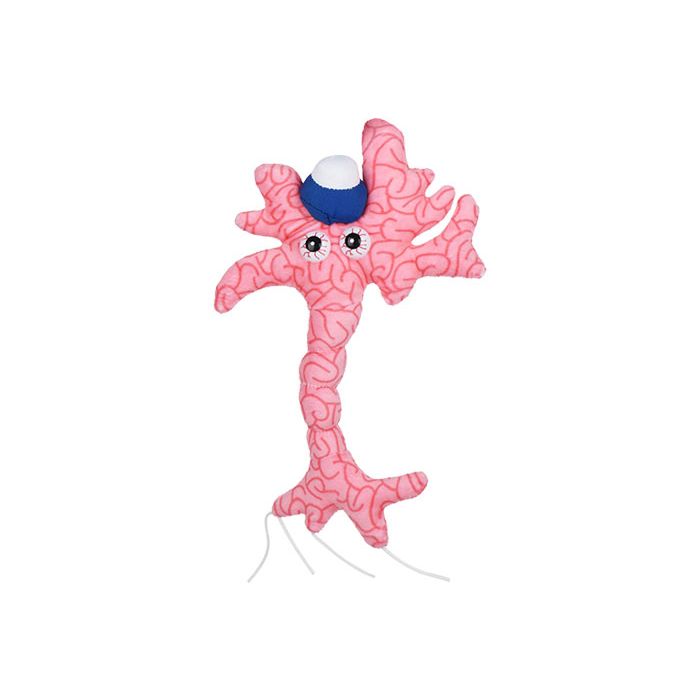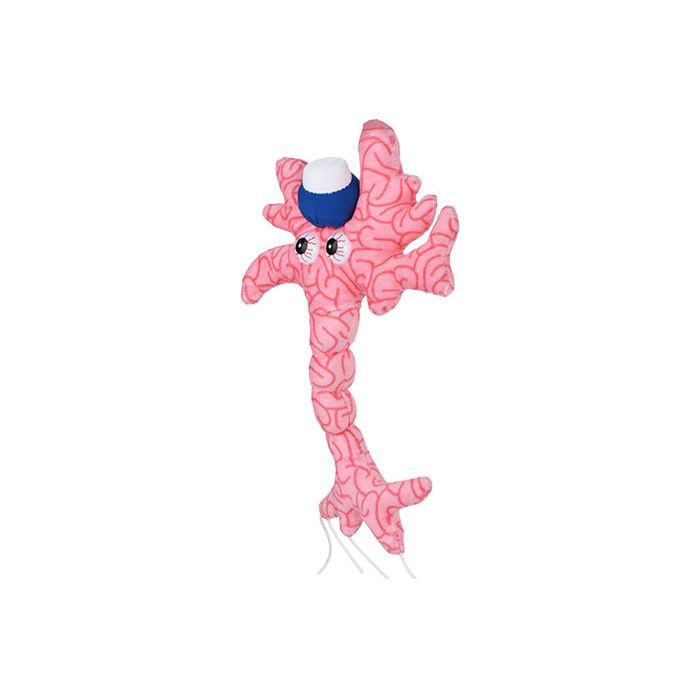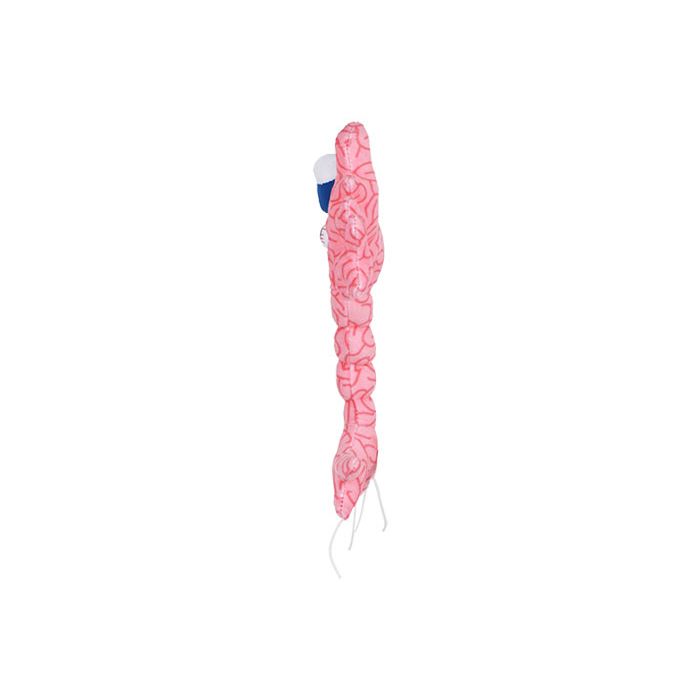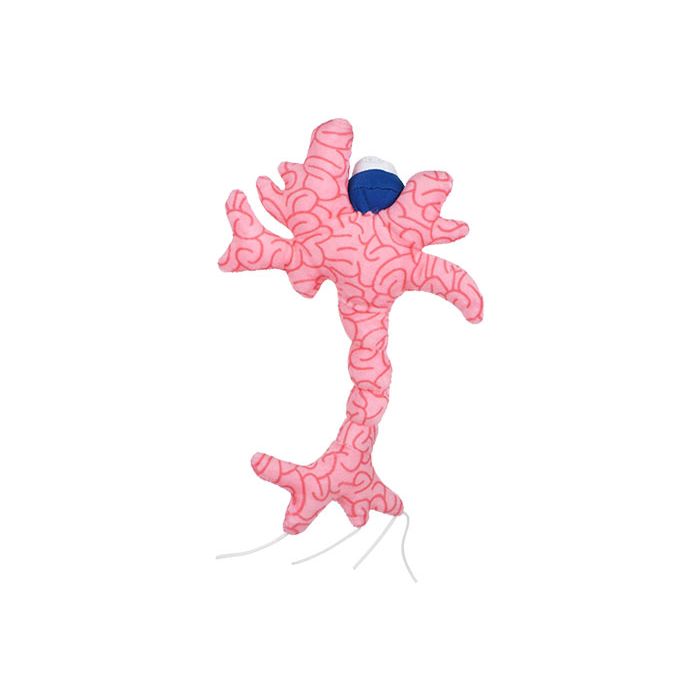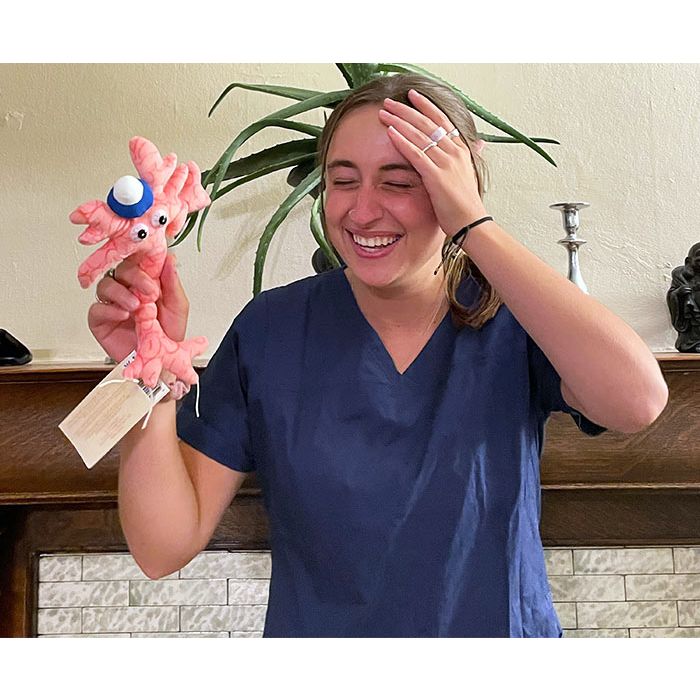Migraine Headache
Out of Stock
Product Details
Additional Information
| Sizes | Giantmicrobes are based on actual microbes, cells, organisms and other critters, only 1,000,000 times actual size! Gigantic (GG) 40-60cm XL (XL) 25-38cm Original (PD) 12-20cm Minis (MM) 5-10cm each Keychain (KC) 5-10cm with clip |
|---|---|
| Materials | Plush from all new materials. Stuffed with polyester fiber fill. Surface washable: sponge with water & soap, air dry. |
| Packaging | Each plush microbe includes a printed card with fun, educational and fascinating facts about the actual microbe or cell. |
| Safety | Every product meets or exceeds U.S. and European standards for safety. For ages 3 and up. |
All about Migraine Headache
FACTS: Headaches are one of the oldest known neurological disorders. The severity and causes of headaches varies widely. The biology is complicated, with over 100 different types of headaches, each with their own set of causes, symptoms and treatments. The most common types are migraine, tension, cluster, hormone, and sinus headaches. Some are caused by illness or the environment. Despite their prevalence and a lot of research into their causes and cures, headaches still challenge the medical community. It is unclear what turns on the mix of signals between your brain, blood vessels and nearby nerves. It is clear that headaches are painful.
Migraines are an intense debilitating type of headache that afflict millions of people. They cause pounding, throbbing pain. Migraines, along with tension and cluster headaches, occur without any clear reason and are not due to known, underlying body problems. They can last for hours or even days. Attacks may occur monthly, weekly or even daily, dominating one’s life. Too many sufferers do not receive a proper diagnosis and treatment.
Along with pain, symptoms may include sensitivity to light, noise, or smells, loss of appetite and upset stomach. One enduring mystery of migraines is the connection between the pounding headache and bizarre alterations in perception and sensory symptoms, such as visual disturbances called aura. There are new drugs, lifestyle strategies and treatments that will hopefully head off the scourge of migraines. This reflects big strides in medical research to identify the brain sites and mechanisms that generate headaches.








